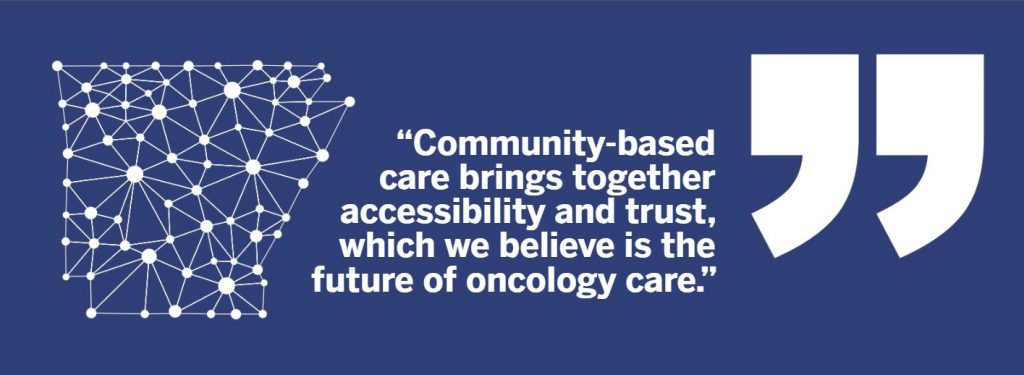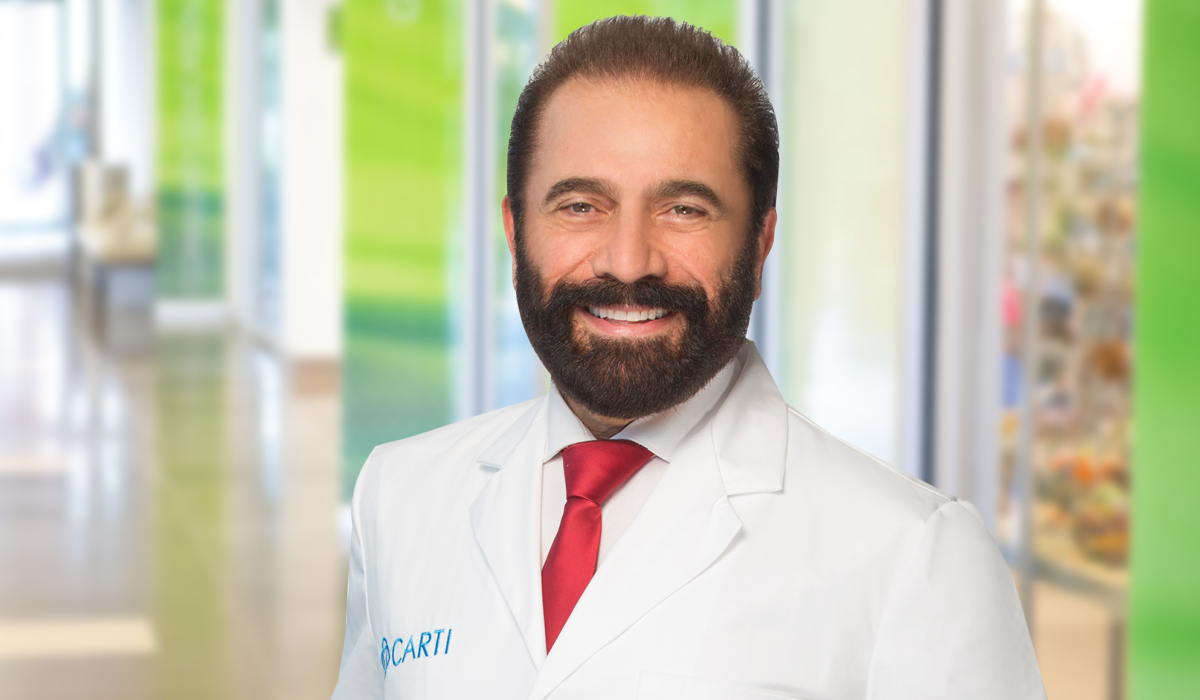The Future of Oncology: Community-Based Cancer Care

The Future of Oncology: Community-Based Cancer Care
By Adam Head, President and CEO, CARTI
The latest Annual Report to the Nation on the Status of Cancer revealed that the cancer death rate has dropped 27 percent over the last 25 years. While that is very positive news nationally, the report for Arkansas is not as positive. Our rates of cancer incidence and death are actually on the rise.
From 2013 to 2017, Arkansas had the fourth highest rate of deaths from cancer. And in 2020, it is estimated that 17,200 Arkansans will receive a new cancer diagnosis. And, we believe these statistics are not all encompassing and that thousands more are living with undiagnosed cancer because of barriers that prevent them from seeing a doctor.
And what are the most common barriers? A lack of access and education; two resounding issues prevalent in rural communities, both in our state and across the country.
According to recent population estimates, 42 percent of Arkansans live in a rural county, compared with 15 percent nationwide. Between the 502 incorporated municipalities in our state, we have communities whose populations range from 201,244 in Little Rock to 28 in Gilbert. We have metropolitan areas equipped with multiple hospital systems and dozens of specialized clinics then small rural towns whose roster of medical providers is nonexistent or fits on the first page of a Google search. Access to medical care is so incredibly varied across our state, but the health outlook and quality of life for the residents of these communities should not be negatively impacted because of this variance.
Monica M. Bertagnolli, MD, FACS, FASCO, Chief, Division of Surgical Oncology, Brigham and Women’s Hospital, says that “while 19% of the US population resides in rural areas, just 6% to 7% of oncology practices have a practice that includes a rural area, creating an access to care issue among older, sicker and poorer populations.”
When a community does not have a facility or provider dedicated to cancer care, their residents suffer. The residents who are already battling other barriers including financial and transportation limitations that may hinder them from being able to seek treatment in an outside community do not even have an option within their community to visit. With limited access to quality preventive screenings and treatment, patients living in these areas often go undiagnosed, or, if they do receive a diagnosis, it is often at a later stage, which leads to a higher mortality rate in these rural areas.
And if they are able to receive access in a community outside their own, that presents another set of challenges including the toll that traveling to and from treatment can have on a patient’s body. They may travel two or more hours to receive treatment then have to spend another two or more hours traveling home, all while feeling the sometimes uncomfortable side effects of their treatment. It would be ideal if instead they could travel thirty minutes or less, allowing them more time to rest and recover.
It is time we find local solutions for local problems. Each Arkansan, whether a person working in downtown Little Rock or a farmer in the Arkansas Delta, should have access to high-quality cancer care. With cancer diagnosis in Arkansas on the rise, leaning into aggressive solutions to address this disparity is of paramount importance.
To do so, we need to redefine oncology care in general and move towards a more community-based approach. From satellite locations specifically for patient follow-up visits and lab draws to comprehensive cancer centers where patients can receive their daily, weekly or monthly radiation and chemotherapy treatments, having locations in and around the communities where patients live is a crucial step in reducing the gap in cancer care. By providing these convenient locations, we can create access to care that does not put the burden on the patient to travel, often disrupting their everyday routine. Community-based care brings together accessibility and trust, which we believe is the future of oncology care.
A few months ago, I, along with some of our physicians, met with healthcare providers from eight different rural towns in our state. Throughout our discussion, a communal theme came up time and time again – when it comes to healthcare, communities outside of Little Rock feel forgotten. That is not okay. When it comes to cancer care, it is not okay for patients to feel left behind.
It is time that we as a medical community realized the future of oncology care in Arkansas should be ‘to go’; to go to the patients, because the best way to transform cancer care in the state and region is through meeting patients where they are.
So how do we do this? By implementing a “road warrior” mindset and traveling to these locations, bringing with us world-class expertise and personalized cancer care. We are fortunate in Arkansas that we have mild weather changes that would rarely cause a provider to be unable to visit their satellite locations. Plus, with a comparatively mid-sized state and a highway system that provides easy access to all corners of the state, provider travel to and from clinics is manageable.
As we look ahead for the future of effective, consistent and trusted oncology care, the future is in community-based settings that allow patients to receive lifesaving cancer care close to home.



